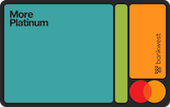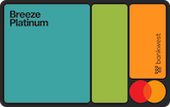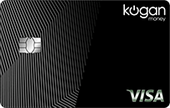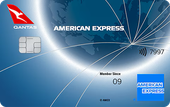
A card that needs a deposit?
Can you get a secured credit card in Australia?
No, secured credit cards are not available in Australia at the time of writing, but they are available in the US, Canada, the UK, and other markets. They are designed for individuals with low credit scores or limited credit history. To open an account, the cardholder must provide a security deposit (usually held by the bank) to act as collateral.
In Australia, credit cards are unsecured, meaning approval is based on your creditworthiness, and no collateral or cash deposit is required. Your credit limit is determined by your income, credit score, and financial history.

A quick explainer on secured credit cards
What is a secured credit card?
A secured credit card requires a refundable security deposit, which acts as collateral for the credit limit. These cards are typically offered to individuals with limited credit histories, providing an opportunity to build credit by demonstrating responsible usage and timely payments. As these cards require you to pay a security deposit, they may be relatively easier to qualify for than other credit card types.

Key features of secured credit cards
- Interest charges apply. Apart from the security deposit, a secured credit card works exactly like a regular credit card. Cardholders can make purchases and pay off balances monthly. If the entire balance isn’t repaid, interest accrues on the remaining amount.
- May help build credit. A secured credit card is often used by individuals with low credit scores or limited credit histories. By using the credit card responsibly, they can build their credit history over time and become eligible for a standard credit card and other types of credit
- Security deposit. Secured credit cards require you to provide a small security deposit to use the card. This amount is typically also linked to the card’s credit limit.

Unlock credit; backed by your cash!
How secured credit cards work
Secured credit cards operate similarly to standard credit cards but require a security deposit as collateral. This deposit reduces the lender’s risk and allows individuals with low credit scores or limited credit history to access credit.
If a payment is missed or the account defaults, the issuer can then use the security deposit to cover the outstanding balance.
1. Require a refundable deposit
Cardholders must deposit funds (e.g., $100–$200 or more), which determines their credit limit.
2. Report to credit bureaus
Responsible use, such as paying on time, can help improve a person’s credit score over time.
3. Operate like a standard credit card
They allow purchases up to the available credit limit, with repayments due each month.
4. Come with interest charges
If the entire balance isn’t paid by the due date, interest accrues on the outstanding amount.

If not secured, then what?
Alternatives to secured credit cards in Australia
If you’re a young Australian or someone who has just started working, you may have a limited credit history and, as a result, a lower credit score. In many countries, providing a small security deposit allows individuals to access secured credit cards, which not only offer credit but also help build a credit history when used responsibly.
However, secured credit cards are not available in Australia at the time of writing. That said, there are still plenty of options for accessing credit and improving your credit score.
Various financial providers offer unsecured credit cards that cater to different needs. If you’re getting your first credit card, you may want to consider a basic, no-frills card with low interest rates and a low or no annual fee. If your credit history is limited and your credit score is low, a low-limit credit card can be a good option. By spending responsibly and paying your bills in full and on time, you can gradually improve your credit score.
However, if your credit score is low due to past financial difficulties or you struggle with impulse spending, it’s essential to consider whether an unsecured credit card is the right choice for you. A credit card is ultimately a form of credit, and if not managed responsibly, it can negatively impact your credit score.
If you're applying for your first credit card or wondering whether you can access credit with a limited credit history, here are some options you may consider.
- Becoming an authorised user. Some banks allow individuals to be added as secondary cardholders on an existing credit account to help build their credit history. This is not to be confused with a joint credit card.
- Low-limit credit cards. Some banks offer entry-level credit cards with low credit limits and basic features like low rate credit cards. These cards often have low credit limits and may be easier to qualify for. These cards may also be suitable for students or first-time credit users with limited credit history.
- Secured personal loans. Instead of a secured credit card, you may be able to take out a personal loan backed by a savings account, term deposit, or asset. Regular repayments help build a strong repayment history. However, the choice between a personal loan and a credit card should depend on your specific financial needs—whether you require a one-time lump sum or ongoing credit access.

Expert opinion
What you should do as an alternative to secured credit cards

Andrew Boyd, co-founder of Credit Card Compare shares alternatives to secured credit cards in Australia.
A stable job and regular salary can improve your chances of getting approved for a credit card. Start with a low-limit, low-interest option to build your credit history responsibly. Paying your balance in full each month helps avoid interest charges and boosts your credit score over time.

Smart credit moves—no card required
Strategies for building credit without a secured credit card
Your credit score plays a crucial role in determining your eligibility for any financial product. While responsibly repaying a loan or credit card can help build your credit history, many lenders require a good credit score before approving these products.
If you're planning to apply for credit, one of the first steps you should take is checking your credit score.
If your credit score isn’t as high as you'd like, here are some ways to improve it:
- Avoid multiple credit applications in a short period. Every application is recorded on your credit file, and too many in a row can negatively impact your score.
- Pay bills and debts on time. Late or missed payments can lower your score. Setting up direct debits can help ensure timely payments.
- Regularly check your credit report for errors. You can request a free copy of your credit report once a year from each of the credit reporting bureaus. If you spot an error, dispute it with the provider or notify the credit bureau to have it corrected.
If you're new to credit and looking to establish a credit history, you may also consider putting utility bills (electricity, gas, water) in your name and ensuring they’re paid on time.
Another option could be asking your parents to add you as an additional cardholder on their credit card. However, be sure to use the card responsibly, as any missed payments could negatively impact your (and their) credit score.
In general, if you keep track of your credit score and managing credit responsibly, you can improve your chances of securing a loan or credit card when you need one.

It's how you use it!
What Australians think and say about unsecured credit cards
Unsecured credit cards are not currently available in Australia, but you may still qualify for a credit card if you have a stable income and can demonstrate your ability to repay the balance.
On getting a credit card with no credit history, one Redditor suggests that approval often depends on steady income and minimal expenses. If you're not paying rent, banks may factor that in when assessing affordability:
"You apply. You show them payslips. If you’re not paying rent, there’s an option to say you’re living with parents. They ask about that so they can factor in your rent payments to determine if you can service the facility. If you have steady income and minimal expenses, they’ll lend to you."
For first-time credit card users, another Redditor advises starting with a small limit and a low-interest card rather than chasing rewards, which may not be worthwhile unless you're spending and repaying large amounts:
"First timers smallest limit. Do u have self-control? Sure, points may have helped, but so would 10c from recycling a single bottle. IMHO, unless you are going to put thousands of dollars through it monthly and always pay it off, get a low-interest card and see what you are like with it. I use McGrath 8.99%—no BS, no real perks. Living off credit to get .01% back is a trap."
These comments highlight a common theme: credit cards can be useful, but only if used wisely. For first-time applicants, having a stable income and controlled spending habits can improve approval chances and prevent financial traps.








